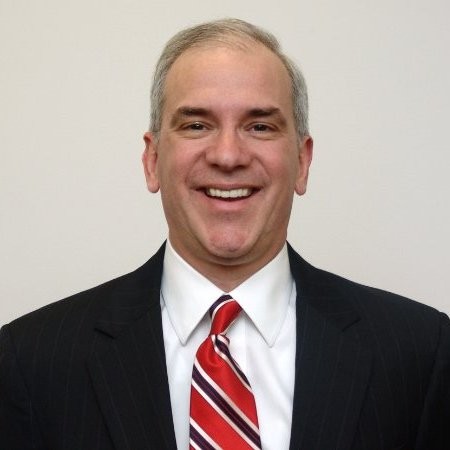Fintech
Board Member James G. Kaiser to Retire From the PCAOB; Contributed Substantially to PCAOB Strategic Plan and the Use of Technology to Enhance Audit Quality

Washington, D.C.–(Newsfile Corp. – October 15, 2020) – The Securities and Exchange Commission today announced that James (Jim) G. Kaiser will leave the Public Company Accounting Oversight Board (PCAOB) after completing his term as a Board member. Mr. Kaiser was appointed to the Board in December 2017 and his term expires in October 2020. Mr. Kaiser was eligible for reappointment to the 2020-2025 term but elected not to stand for reappointment. Mr. Kaiser has agreed to continue his service as a member of the PCAOB Board past the expiration of his term on October 24, 2020, until such time as Megan Zietsman is able to transition into her new role as a Board member later this year.
“I would like to thank Jim Kaiser for his dedicated public service as a member of the PCAOB Board. Jim brought a very deep and invaluable level of audit expertise and experience to the Board and we were fortunate that he was willing to give so much time to public service after a distinguished professional career,” said SEC Chairman Jay Clayton. “My interactions with Jim were always positive. He moved the PCAOB forward and I will miss his expertise and professionalism.”
SEC Chief Accountant Sagar Teotia added, “I would also like to thank Jim Kaiser for his dedicated service and his contributions to enhancing audit quality. Jim has worked with many others at the PCAOB to help the organization continue its efforts in advancing its strategic plan. Specifically, his expertise was critical to help improve stakeholder engagement, enhance the PCAOB inspections’ process, and advance the PCAOB from a technological point of view.”
“It has been an honor to serve investors and the public interest. I am proud of the many accomplishments we have made to advance our strategic plan and enhance audit quality during my term. We have increased our stakeholder engagement, improved our inspections process and reporting, and developed a plan to technology-enable the PCAOB,” said Mr. Kaiser.
During his board service, Mr. Kaiser’s efforts centered on protecting investors by applying his expertise and experience in auditing and the use of technology to help shape the PCAOB’s strategic plan, technology, and transformation efforts. His work spanned across all PCAOB programs – registration, inspections, standard setting, and enforcement.
Jim Kaiser, a certified public accountant, joined the PCAOB after retiring from PricewaterhouseCoopers after 38 years, including 28 years as an audit partner.
Powered by WPeMatico
Fintech
Central banks and the FinTech sector unite to change global payments space

The BIS, along with seven leading central banks and a cohort of private financial firms, has embarked on an ambitious venture known as Project Agorá.
Named after the Greek word for “marketplace,” this initiative stands at the forefront of exploring the potential of tokenisation to significantly enhance the operational efficiency of the monetary system worldwide.
Central to this pioneering project are the Bank of France (on behalf of the Eurosystem), the Bank of Japan, the Bank of Korea, the Bank of Mexico, the Swiss National Bank, the Bank of England, and the Federal Reserve Bank of New York. These institutions have joined forces under the banner of Project Agorá, in partnership with an extensive assembly of private financial entities convened by the Institute of International Finance (IIF).
At the heart of Project Agorá is the pursuit of integrating tokenised commercial bank deposits with tokenised wholesale central bank money within a unified, public-private programmable financial platform. By harnessing the advanced capabilities of smart contracts and programmability, the project aspires to unlock new transactional possibilities that were previously infeasible or impractical, thereby fostering novel opportunities that could benefit businesses and consumers alike.
The collaborative effort seeks to address and surmount a variety of structural inefficiencies that currently plague cross-border payments. These challenges include disparate legal, regulatory, and technical standards; varying operating hours and time zones; and the heightened complexity associated with conducting financial integrity checks (such as anti-money laundering and customer verification procedures), which are often redundantly executed across multiple stages of a single transaction due to the involvement of several intermediaries.
As a beacon of experimental and exploratory projects, the BIS Innovation Hub is committed to delivering public goods to the global central banking community through initiatives like Project Agorá. In line with this mission, the BIS will soon issue a call for expressions of interest from private financial institutions eager to contribute to this ground-breaking project. The IIF will facilitate the involvement of private sector participants, extending an invitation to regulated financial institutions representing each of the seven aforementioned currencies to partake in this transformative endeavour.
Source: fintech.globa
The post Central banks and the FinTech sector unite to change global payments space appeared first on HIPTHER Alerts.
Fintech
TD Bank inks multi-year strategic partnership with Google Cloud

TD Bank has inked a multi-year deal with Google Cloud as it looks to streamline the development and deployment of new products and services.
The deal will see the Canadian banking group integrate the vendor’s cloud services into a wider portion of its technology solutions portfolio, a move which TD expects will enable it “to respond quickly to changing customer expectations by rolling out new features, updates, or entirely new financial products at an accelerated pace”.
This marks an expansion of the already established relationship between TD Bank and Google Cloud after the group previously adopted the vendor’s Google Kubernetes Engine (GKE) for TD Securities Automated Trading (TDSAT), the Chicago-based subsidiary of its investment banking unit, TD Securities.
TDSAT uses GKE for process automation and quantitative modelling across fixed income markets, resulting in the development of a “data-driven research platform” capable of processing large research workloads in trading.
Dan Bosman, SVP and CIO of TD Securities, claims the infrastructure has so far supported TDSAT with “compute-intensive quantitative analysis” while expanding the subsidiary’s “trading volumes and portfolio size”.
TD’s new partnership with Google Cloud will see the group attempt to replicate the same level of success across its entire portfolio.
Source: fintechfutures.com
The post TD Bank inks multi-year strategic partnership with Google Cloud appeared first on HIPTHER Alerts.
Fintech
MAS launches transformative platform to combat money laundering

The MAS has unveiled Cosmic, an acronym for Collaborative Sharing of Money Laundering/Terrorism Financing Information and Cases, a new money laundering platform.
According to Business Times, launched on April 1, Cosmic stands out as the first centralised digital platform dedicated to combating money laundering, terrorism financing, and proliferation financing on a worldwide scale. This move follows the enactment of the Financial Services and Markets (Amendment) Act 2023, which, along with its subsidiary legislation, commenced on the same day to provide a solid legal foundation and safeguards for information sharing among financial institutions (FIs).
Cosmic enables participating FIs to exchange customer information when certain “red flags” indicate potential suspicious activities. The platform’s introduction is a testament to MAS’s commitment to ensuring the integrity of the financial sector, mandating participants to establish stringent policies and operational safeguards to maintain the confidentiality of the shared information. This strategic approach allows for the efficient exchange of intelligence on potential criminal activities while protecting legitimate customers.
Significantly, Cosmic was co-developed by MAS and six leading commercial banks in Singapore—OCBC, UOB, DBS, Citibank, HSBC, and Standard Chartered—which will serve as participant FIs during its initial phase. The initiative emphasizes voluntary information sharing focused on addressing key financial crime risks within the commercial banking sector, such as the misuse of legal persons, trade finance, and proliferation financing.
Loo Siew Yee, assistant managing director for policy, payments, and financial crime at MAS, highlighted that Cosmic enhances the existing collaboration between the industry and law enforcement authorities, fortifying Singapore’s reputation as a well-regulated and trusted financial hub. Similarly, Pua Xiao Wei of Citi Singapore and Loretta Yuen of OCBC have expressed their institutions’ support for Cosmic, noting its potential to ramp up anti-money laundering efforts and its significance as a development in the banking sector’s ability to combat financial crimes efficiently. DBS’ Lam Chee Kin also praised Cosmic as a “game changer,” emphasizing the careful balance between combating financial crime and ensuring legitimate customers’ access to financial services.
Source: fintech.global
The post MAS launches transformative platform to combat money laundering appeared first on HIPTHER Alerts.
-
Latest News7 days ago
DEMAND AT ASIAN FACTORIES RISES AT STRONGEST RATE IN OVER 2 YEARS, IMPROVING NEAR-TERM GROWTH OUTLOOK FOR MANUFACTURING WORLDWIDE: GEP GLOBAL SUPPLY CHAIN VOLATILITY INDEX
-
Latest News7 days ago
Bitrue Gears Up for 2024 Bitcoin Halving with Trading Competition
-
Latest News7 days ago
Global Airlines Appoints New Head of Finance from KPMG
-
Latest News6 days ago
“The Hainan FTP and Me”: Looking at Hainan’s Transformations
-
Latest News7 days ago
Spendesk combines procurement with spend management through Okko acquisition
-
Latest News7 days ago
BtcTurk Organizes Half Marathon in Istanbul to Celebrate Halving Period
-
Latest News4 days ago
Millions of people unite around doing good on the 18th International Good Deeds Day held yesterday worldwide
-
Latest News7 days ago
Bitget to Take Center Stage at Blockchain Life and Token2049 Dubai



